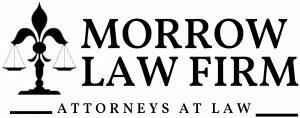
Key Phrases to Avoid When Speaking With Insurance Adjusters After a Workplace Injury
The firm, led by William P. Morrow, John Michael Morrow, Jr., and Stephen M. Morrow, has represented numerous clients navigating complex workers’ compensation and injury claim procedures. One of the recurring challenges observed involves what is said in the early conversations with insurance representatives.
“Insurance adjusters are trained to ask questions in ways that seem routine but are often designed to protect the insurer’s bottom line,” said William P. Morrow, an attorney at Morrow Law Firm who focuses on workplace injury cases. “Statements made in these conversations—even casually—can have long-term consequences.”
One of the most common mistakes made in these conversations is attempting to “downplay” the injury. Phrases like “I’m okay,” “It’s not that bad,” or “I think I’ll be fine” may feel like polite or optimistic responses in the moment, but they can later be used to diminish the seriousness of the injury in the insurer’s records.
Another misstep is providing speculative or uncertain details about how the injury occurred. Saying, “I’m not sure exactly what happened,” or “Maybe I wasn’t paying attention,” can be interpreted as a lack of credibility or a form of admission that may be used to dispute the claim. Providing a clear, factual account—and avoiding speculation—is critical.
Additionally, discussing medical history beyond what is directly relevant can create unnecessary complications. Some adjusters may ask whether the worker had “ever experienced back pain before” or “felt this type of discomfort previously.” While these questions may appear routine, they are often aimed at finding a way to attribute the injury to a pre-existing condition rather than a workplace incident.
William P. Morrow adds, “There is no requirement to share an entire medical history during an early-stage conversation with an adjuster. The scope of that discussion should remain focused on the current injury and its relation to the work incident.”
Recording a statement is another area where caution is advised. Adjusters may request a recorded conversation “for accuracy,” but this recording may be scrutinized for inconsistencies or statements that could be taken out of context. It is entirely within an injured worker’s rights to delay or decline a recorded statement until proper legal guidance has been received.
Timing of medical treatment also enters the conversation. Delays in seeking care, even if caused by factors outside of the injured party’s control, may later be framed as a lack of seriousness or a sign that the injury was not significant. The attorneys at Morrow Law Firm underscore the importance of prompt documentation—not only through medical channels but also by ensuring that all workplace incident reports are completed with accuracy and filed in a timely manner.
Misunderstandings also occur when injured workers agree to language like “returning to light duty” without fully understanding the implications. Accepting a light-duty position before being medically cleared can have implications for both treatment outcomes and legal standing.
Statements about fault are especially problematic. Saying “It was probably my fault” or “I should have been more careful” can be interpreted as accepting liability, which may reduce or eliminate compensation eligibility. In Louisiana, workers’ compensation operates on a no-fault basis. Admitting fault—whether factually accurate or not—may confuse that process.
“Language matters,” said William P. Morrow. “In the days following an injury, it’s important to remain precise and objective. Let the records speak for themselves. The goal is to protect the integrity of the claim and allow the process to unfold with accurate information.”
Morrow Law Firm, located in Opelousas, Louisiana, provides legal representation in the area of injury law, including cases involving workplace injuries. The firm is operated by William P. Morrow, John Michael Morrow, Jr., and Stephen M. Morrow—attorneys with a long-standing presence in the region’s legal community.
For those navigating the early stages of a workplace injury claim, avoiding damaging statements can be as important as filing on time. The attorneys recommend documentation over dialogue and facts over assumptions as a guiding principle in all conversations with insurance adjusters.
Morgan Thomas
Rhino Digital, LLC
+1 504-875-5036
email us here
Visit us on social media:
Facebook
Distribution channels: Culture, Society & Lifestyle, Insurance Industry, Law
Legal Disclaimer:
EIN Presswire provides this news content "as is" without warranty of any kind. We do not accept any responsibility or liability for the accuracy, content, images, videos, licenses, completeness, legality, or reliability of the information contained in this article. If you have any complaints or copyright issues related to this article, kindly contact the author above.
Submit your press release

